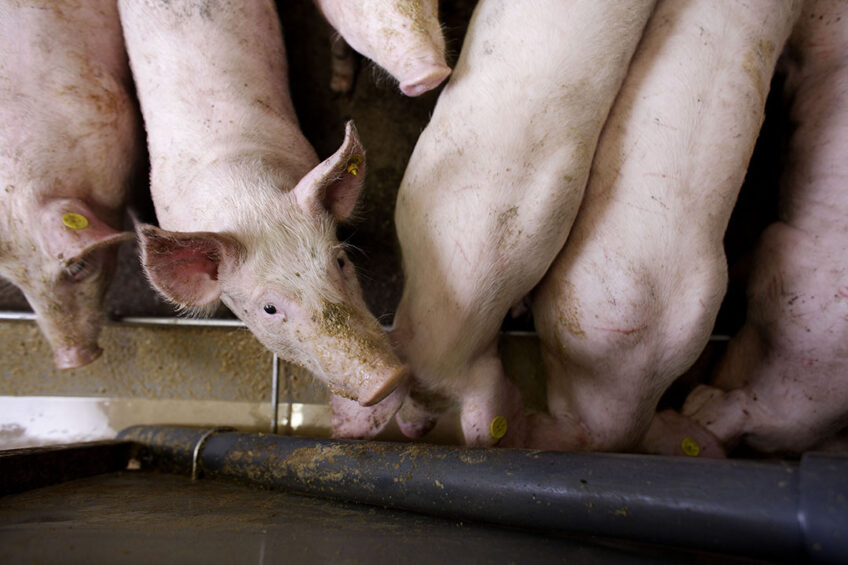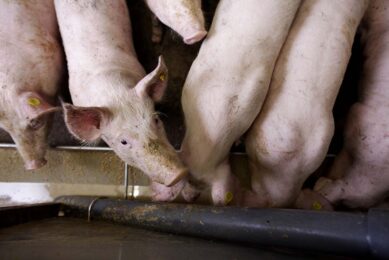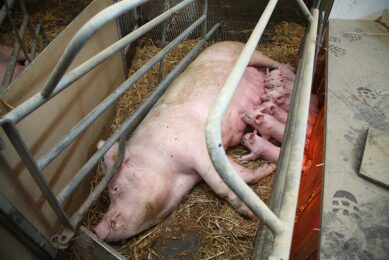Updating the US ‘Nutrient Requirements of Swine’

It has been 10 years – 2012 – since the National Research Council (NRC) in the US published an update of the national Nutrient Requirements of Swine.
Since 1944, there have been 11 updates. Each of them eliminated requirements and recommendations for various nutrients that are no longer relevant or appropriate, and added new ones. The 2012 update incorporated new research findings but also included information on feed ingredients from the biofuels industry, updated requirements for digestible phosphorus and more.
Informing the update of the Nutrient Requirements of Swine
The next update will hopefully incorporate the survey research of Dr Jamil Faccin. He is a veterinarian and scientist at Kansas State University (KSU). He does not expect the update before 2025 or 2026.
Faccin thinks that the next update will focus more on pig health parameters. This is because many essential nutrients are heavily involved in metabolism and immune functions. However most of the time these do not affect growth performance.
Dr Faccin’s survey was national in scope and examined vitamin and trace mineral use. It has been 6 years since the last national survey of this kind. The last survey was in 2016, conducted by Dr Josh Flohr and colleagues at KSU.
Survey
From November 2021 to February 2022, Faccin surveyed 37 swine nutritionists representing 29 production systems and 8 US nutrition supplier companies. He asked them about levels of vitamins and trace minerals in swine diets. In a university press release, Faccin said he also asked them to provide “weight ranges associated with each dietary phase, and the number of sows utilising their nutritional recommendations.”
From the survey results, Faccin found considerable variation. He says this is due to variations among respondents in terms of the health of the herds they manage, sources of vitamins and minerals, formulation of diets, premix storage conditions, and differences in margin-of-safety mindsets. He has concluded that compared to the last NRC update, respondents are using much higher levels.
Compared to the 2016 survey, supplementation levels are similar with a few specific differences. “Compared to Dr Flohr’s analysis,” said Dr Faccin, “nursery phase 1 diets seem to have more added vitamins and trace minerals.”
Vitamins
In terms of vitamins, as Dr Faccin explained at the recent meeting of the American Society of Animal Science, producers are using most vitamins at a rate that is 2 to 9 times higher than NRC 2012 recommendations for reproductive animals. Producers however lowered their safety margins in finisher pigs, except for vitamin D and K. More on Dr Faccin’s research will be presented at KSU’s Swine Day in mid-November.
Trace minerals
In terms of trace minerals, a brand new master’s thesis at South Dakota State University by Marissa LaRosae has found that reducing trace mineral inclusion level for grow-finish pigs did not impact growth performance or carcass characteristics. It did decrease the trace mineral concentrations found in the feces.
China and Brazil
Similarly to Dr Faccin’s findings, a recent study in China found that the levels of most vitamins and minerals being given to pigs there are “far above” the recommendations published by China’s National Research Council and in the China Feeding Standard for Swine. The same thing is true for Brazil. There, vitamin and mineral levels across the pork industry are between 40% and 240% higher than the national recommendations.
Faccin has found that in comparison to China and Brazil, swine diets in the US tend to have higher inclusions of riboflavin (a vitamin from the B complex) across multiple production phases. However, he adds that few other nutrients are used at a higher inclusion level in the US than in China and Brazil. “These are vitamin E for breeding herd, thiamin on nursery, pyridoxine on nursery and breeding herd, niacin in all phases, and choline for breeding herd,” he said.
 Beheer
Beheer








 WP Admin
WP Admin  Bewerk bericht
Bewerk bericht